- Home
- Patricia Briggs
Raven s Strike Page 2
Raven s Strike Read online
Page 2
“Can you see where the people went?”
“There’s someone here, Da,” Tole said, his face pressed against a crack in the wall. “Out by the smithy. Strangers this time.”
Aliven looked up from the damp cloth he was using on his wife’s forehead. She hadn’t opened her eyes since he’d brought her here days ago.
Because their home was closer to the well than the smithy was, his wife had been quicker to answer their daughter’s scream. By the time he’d gotten to the well, Lorra was dead and his wife was struggling beneath some dark beast. When the strange creature noticed Aliven it ran off; at first he’d thought that the sound of his shout or the sight of his hammer had sent it fleeing—but he’d since learned the folly of that. Perhaps it only hadn’t want to kill its food too fast lest it spoil. In any case, between the time he’d carried Irna into the house and returned for Lorra, it had come back and dragged her body away.
He’d sent his son for Tally, his wife’s cousin, who’d been so immersed in his potting that he’d not heard Lorra’s scream. As the other man had come hurrying over, it had attacked yet again, from behind the garden hut. If Aliven hadn’t been carrying his hammer still, the beast would have gotten them both instead of just clawing up Tally’s face.
He’d never seen anything move as fast as the beast did. Aliven had gotten Tally and the two children into their hut and barred the windows and doors. So far the beast hadn’t torn through the wooden walls, but the smith was pretty certain the thin walls wouldn’t keep it out when it finally decided it wanted in.
It had, after all, herded him back into the hut as neatly as a well-trained sheepdog putting lambs into their fold. Yesterday, a couple of farmers had come to pick up the plowshare he’d fixed for them. Aliven had left the hut to warn them, but he’d been too late. He’d found them both, dead, behind the potter’s shed.
The beast had let him stay there a while. But when he’d gotten to his feet, it had pushed him back to the hut with unseen growls and noises. It wanted them there until it was hungry again.
Both Irna and Tally were dying. The initial wounds had been bad enough, but infection had set in with frightening speed. Irna hadn’t moved for a day and a half, and Tally had been unconscious since daybreak.
Trapped inside the confines of the little hut, Aliven’d had to make do with what they had, and—he carefully wet the cloth again—he was running out of water.
Maybe these new people Tole was watching would be able to help. The Sept sent men out on patrols, soldiers who might know how to deal with the beast.
“Who is out there?” he asked his son.
“A dark man with a little grey in his hair, tall like Daneel. He’s limping pretty badly. They’ve a horse—it’s spotted like a cow, Da. There are two other men with him, younger. They look like they’re all close kin. Can they help us?” Tole looked up with hope in his eyes; Aliven hadn’t told either of his children about the two dead farmers.
He left his wife’s side and put his own eye against the gap between boards for a minute. Tole, for all that he’d not seen a dozen summers, was sharp-eyed. The older man and one of the young men looked as alike as any father and son he’d ever seen. The second young man shared some of the same features, but his hair was—
Aliven pulled his head away and spat. “Travelers,” he said.
“Travelers?” Nona, his youngest, looked up from tending Tally. “They’ll kill it for us!”
“You’ve been listening to your mother’s stories,” Aliven said, disappointment making his voice even gruffer than usual. “Travelers only help themselves—and they help themselves to everything they can.”
But he unbolted the door anyway and put his head out. He’d not see anyone, not even Travelers, killed if he could help it.
“Leave, Travelers!”
Tier looked up from where Lehr had discovered the marks of a struggle. Two men, he’d said, both of them dragged around behind the pottery.
“There’s your people,” Tier told Jes, spying a man peering out from a smallish hut on the far side of the cluster of buildings.
“We mean you no harm,” Tier said, limping toward the man. “My son tells me you’ve had some people killed by an animal.”
“Go away, Traveler,” said the man again. “There’s no gain to be had from this. I don’t want your deaths on my conscience.” His head retreated, and he pulled the door closed.
Lehr and Jes both followed Tier, flanking him. Lehr kept his eyes on the ground while Jes kept up a restless sweep of their surroundings.
“This place reeks of fear and blood,” said Jes. “Fear and blood and something wrong.”
Tier slanted a wary glance at his oldest son. “Stay back from the hut when we get there. This man sounds frightened enough. Your presence will only frighten him more.”
Jes met his gaze but didn’t say anything.
“It’s no use, Papa,” said Lehr, not looking up. “He’s not going to leave you when he thinks you might be in danger. Trying to make him stay back is just going to frustrate you.”
“I suppose I can’t keep you back either,” muttered Tier.
That brought Lehr’s face up as he flashed a quick smile. “Mother told us to watch over you, remember?” His gaze caught on a shed set just outside the huddle of buildings, and he took a sharp intake of breath. “That’s where it’s laired,” he said. “Over there in the well house. It’s left dozens of tracks back and forth. And Jes is right, I can smell the taint, too. Whatever this thing is—it’s shadow-tainted.”
Tier looked, but all he could see was a narrow path through knee-length, yellowed cheatgrass. “Can you tell what it is yet?”
Lehr shook his head. “Nothing I’ve tracked before.”
Tier paused a moment, frowning. He loosened his sword for a quick pull if he needed it. “Lehr, keep an eye on that well while I’m trying to talk. Your mother would never let us live it down if I got you killed.”
Lehr took his bow off his shoulder and strung it. “I’ll watch.”
Tier knocked on the door of the greying hut. “We’re here to help if we can,” he said, sliding as much Persuasion into his voice as he felt comfortable doing. He would force no man completely against his will. “Tell me what happened here.”
The door jerked open, releasing an unpleasant miasma of wound-rot and sweat. A wiry man, as dark as Tier himself, peered out, squinting against the light, the same man who’d tried to warn them off. His beard was still dark although grey shot plentifully through the thinning hair on the top of his head. His hands were callused and bore the kinds of small scars working hot metal could give a man. This must be the smith.
“Traveler,” spat the smith. “I know what your kind does. Fool with the weather, then beggar the farmers to fix it right again. Call up a curse and remove it for payment. If you’ve visited this thing upon us for gold, I’ll see you dead myself. If you’ve not, then I’ll tell you again. If you stay, it will kill you, too—though likely it is too late already.”
“We’re not that kind of Traveler,” said Tier smoothly. “Though I know that there are more than one clan who do as you say. I am Tieragan of Redern and these”—he realized that he couldn’t see Jes—a not-uncommon occurrence when Jes was on alert—and changed midsentence—“this is my son, Lehr.”
The smith glanced around nervously. Tier didn’t blame him, he felt it, too—but unlike the smith, he knew the source of his own unease. Jes was somewhere nearby. As if the menace that clung to the Guardian wasn’t enough, his magic brought both cold and fear to anyone around him.
“My name is Aliven,” said the smith, reluctantly responding to the goodwill that Tier was projecting with all the skill he could muster.
Tier stepped forward and Aliven the Smith gave way, allowing Tier to maneuver past him and into the hut.
Two children, a boy not much older than Tier’s youngest and a girl a few years younger huddled together near the pole in the center of the room, their smudged faces unev
enly revealed by the light that filtered through between the boards. The boy had an arm around the girl and was keeping a sharp eye on Tier. The only other occupants of the hut were two adults, a man and a woman, lying on pallets crowded together on the floor.
Lehr came in behind Tier and knelt beside the blanketed man.
“What did this?” he asked, pointing to something that Tier, in the uncertain light, couldn’t see.
There was a barred window just to the right of the door. Tier pulled the bar and pushed the shutter board to the side so that he could see what had so startled Lehr.
Under the improved lighting Tier could see the wounds on the woman, and the man’s face had been sliced open by something sharp.
“It used three claws,” said Lehr. “Just like the thing that killed the chickens and the two men by the pottery.”
“The Fahlarn had a three-pronged fork with sharpened points that caused wounds somewhat like that,” said Tier, kneeling to get a better look. “But see the way the bone is marked? Whatever cut him was sharper than the Fahlarn’s weapon, sharper than any claw I’ve ever seen.”
Jes entered the too-small hut in a wave of cold air that somehow pushed aside the smell of rot. The aura of dread that followed him brought the smith to his knees as surely as an axe fells a tree.
“What happened to them?” asked Tier.
“The beast,” whispered Aliven. “It killed my daughter first, and clawed up my wife, who was drawn by Lorra’s cries. Then it attacked Tally.” He gestured to the man Lehr still knelt beside. He hesitated, looking at his children a moment, then said in a low voice, “When Kaor and Habreman came for the plowshare I’d repaired, it killed them, too.”
“What did it look like?” asked Tier.
The smith shuddered from the memory or perhaps just the cold and fear that Jes wore like a cloak. “It was too fast. I can tell you it wasn’t a wolf, boar, or badger. It was faster than a fox and maybe twice as big. It had four limbs right enough and a stub tail that looked fluffy and pale. The rest of it was dark brown or grey.”
He stared at Jes, then let his glance fall upon Lehr’s ash-blond hair. “I don’t have much silver,” he said slowly. “My cousin has a gold piece put back from when he fought for the Emperor when he was a boy, but I don’t know where it is. You might apply to my Sept, since it’s his well we’re using, but I doubt he’ll pay Travelers for anything. He has his armsmen drive Travelers away from his territory.”
Tier opened his mouth to refuse to take payment of any kind but stopped. There were a lot of mouths in the clan of Travelers who were escorting them home, and helping people like the smith was how they earned their food.
“I don’t know what the charge’ll be if we rid you of this beast,” he said finally. “That’s not my decision. It won’t be more than you can bear—my word on it.” That much he could fight Benroln on if he had to.
Jes dropped to all fours and brought his face next to the wounded man’s. The smith flinched at the sudden movement.
“It was a mistwight,” whispered Jes. “I can smell it.”
“What’s a mistwight?” asked Lehr.
“A water imp,” replied Tier. “It’s not undead, despite its name. They’re called wights because they are shy, and most people catch only a glimpse of them before they’re gone. I’ve heard that they can be nasty if you corner them. I’ve never heard of them being shadow-tainted, but most people couldn’t tell one way or the other on that, I suppose. Your mother will know for certain.”
Mistwights didn’t live around home, where the snow got too deep. He’d glimpsed one once when he’d gone a-soldiering, but he couldn’t see how Jes would have ever met one. “How do you know what they smell like, Jes?”
Dark eyes looked up, and Tier saw Jes, his Jes, rise up to answer his question. “I d-don’t know,” he stammered. “We just smelled it and knew.” A breath later, and the Guardian’s sharp darkness was back in his eyes.
Tier had never seen him do that before, transform from Guardian to Jes and back again, though it happened the other way around from time to time. It made him wonder why it had been necessary for Jes to answer that question rather than the Guardian.
All of his children knew that, as a Bard, Tier could hear a lie as clearly as an off-pitch note. Would the Guardian have felt compelled to lie if he had answered the question and so had given way to Jes?
“It’s all right, Jes,” said Lehr. “It doesn’t matter. Now we know what we’re dealing with.”
Lehr was right, time enough to worry about Jes when this mess was cleaned up. Assuming the Guardian was right about what they were facing—and he certainly hadn’t lied about it—they had trouble enough facing them.
Tier looked around the hut and pulled together a plan of attack. “Jes, I want you and Lehr to go back to the clan and tell your mother and Benroln what we’ve found here. Tell them we need Brewydd for the wounded and whatever people it takes to get rid of a tainted mistwight.”
“Both of us?” asked Lehr. “Jes can stay to keep you safe.”
Tier shook his head. “Both of you.” It wouldn’t do to say that his part of this, soothing the smith, would be better done without his sons, so he chose another truth. “If Jes stays, I’ll never be able to keep him away from the mistwight until your mother gets here. Take Skew with you, so he doesn’t get eaten while we’re waiting.”
“What will keep you safe?” asked Jes.
“If these people have been snug in here for days, I expect I’ll survive a couple of hours,” Tier said.
Jes frowned unhappily, but in the end he went out and gathered up Skew’s reins. After a brief argument about who would ride, they set off at a rapid jog, leading the horse.
Once his sons were gone, Tier closed the door and barred the window again because their being open seemed to make the smith nervous. Then he sat on the floor and braced his back against a wall, sighing with the relief of getting his weight off his knees.
He looked away from the oppressive fear on the face of the smith. The fear of the thing in the well was stronger right now than the man’s dislike of Travelers, but he wasn’t getting any happier trapped in the tight quarters of the hut with Tier.
Tier decided to give the smith time to calm.
“Hello,” he said, directing his remark to the two children, who huddled against the opposite wall.
The boy responded with a wary nod, the girl just tucked herself closer to her brother’s side.
“There’s a healer coming now to take care of your folk. We’ll get rid of the creature who hurt them, too,” he told them. “I know that it’s pretty scary, but so is my wife.”
“Your wife is scary?” asked the boy.
Tier nodded solemnly. “She is.”
“That man was scary,” whispered the girl, then pressed her face against the boy’s arm. “The cold one.”
“Jes?” said Tier. “You don’t have to worry about Jes, his job is to protect people. It’s just that he has a special kind of magic, and one of the things it does is make people around him nervous. Travelers don’t just have one kind of magic the way we do, you know.”
“We?” asked the smith. “Aren’t you a Traveler?”
Tier shook his head. “No. My wife is, but I’m from Redern in the Sept of Leheigh over in the Ragged Mountains.”
There was a tug on his shirt, and Tier looked down to see that the girl had left her seat to get his attention. He smiled at her. “Yes?”
“What kind of magic did the cold man have?”
“Jes is a Guardian,” Tier explained. “His magic makes him a good guard against all kinds of evil. He can turn into animals or make it hard for others to see him if he wants to. The other man, my son Lehr, is a Hunter; he has a different magic. He can track things, and his magic helps him aim his arrows.”
“Traveler mages aren’t as good as ours,” said the boy. “Our mages can do anything.”
“I wouldn’t say that.” Tier felt no guilt at revealing things
the Travelers liked to keep secret. “They’re just different. My wife, Seraph, is closest to our wizards. Travelers call her Order either Mage or Raven—each of the Orders has a bird associated with it.”
“How many kinds do they have?” asked the boy.
The tension in the hut had dropped off. The girl was leaning against Tier’s arm instead of her brother’s, and the boy had quit hugging the post as if it were the only thing that could keep him safe. Partly, Tier knew, it was that he was a distraction from the thing they were afraid of. Partly it was Tier’s own magic, Bardic magic, easing their fears.
“Six.” Tier ticked them off on his finger. “You’ve met Guardian—that’s Eagle, and Hunter the Falcon. Then there’s Raven the Mage. Lark is for Healer—and you are lucky the Traveler clan we’re with has a Lark for your mother. Cormorant is Weather Witch, and Owl is Bard.”
“Why birds?” asked the girl. “Why not fish?”
The boy rolled his eyes. “Nona, don’t be stupid. Why would they name their powers after fish? How would you like to tell people that you were a garbagefish or a trout? That’s stupid.”
“I asked my wife why they used birds,” Tier said quickly, before they could start fighting. “She didn’t know.”
“You talk a lot for a Traveler,” said the smith, with a shade less hostility than before.
“But then, as I told you”—Tier smiled as he spoke—“I’m not a Traveler.” The smile had Aliven relaxing further. As Jes’s job was protection, Tier’s was winning over hostile strangers, and he would do it as he saw fit.
Not Traveler, but Owl and Bard, he thought as the smith eased enough to take a seat against the opposite wall. But there was no use confusing the issue.
It had taken Tier’s wife years to adjust to the idea that though there was not a drop of Traveler blood in him, he was still Bard. Order Bearers, it seemed, did not have to be Travelers.
Tier was in the middle of a fine story of a Traveler hero who saved children from a rampaging demon-wolf when they all heard hoofbeats.
Tier started to rise to his feet, but fell back with a grunt because his knees had stiffened up. A hand appeared in front of his face, and, after a brief hesitation he grasped it and let the smith haul him to his feet.

 Wolfsbane
Wolfsbane When Demons Walk
When Demons Walk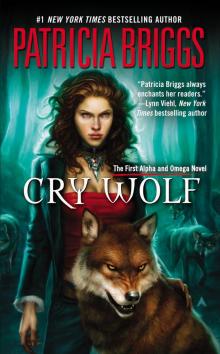 Cry Wolf
Cry Wolf On the Prowl
On the Prowl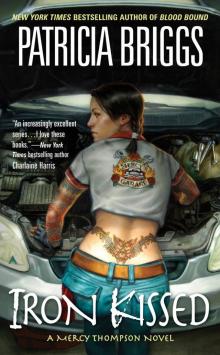 Iron Kissed
Iron Kissed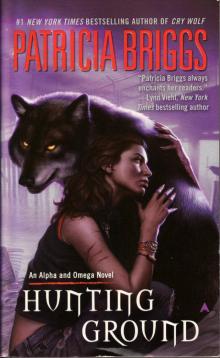 Hunting Ground
Hunting Ground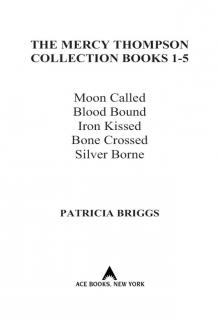 Patricia Briggs Mercy Thompson: Hopcross Jilly
Patricia Briggs Mercy Thompson: Hopcross Jilly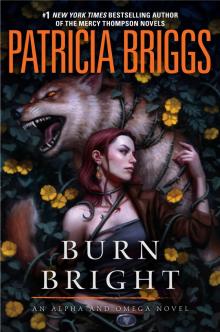 Burn Bright
Burn Bright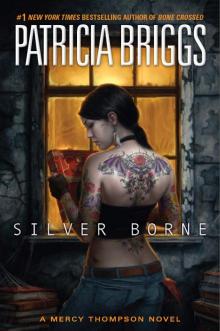 Silver Borne
Silver Borne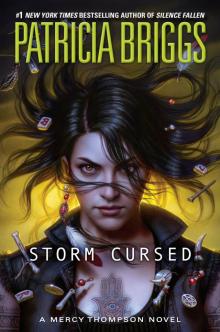 Storm Cursed
Storm Cursed Shifting Shadows
Shifting Shadows Frost Burned
Frost Burned River Marked
River Marked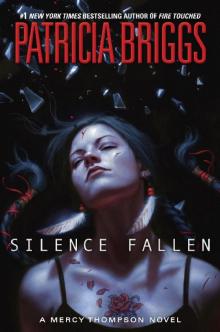 Silence Fallen
Silence Fallen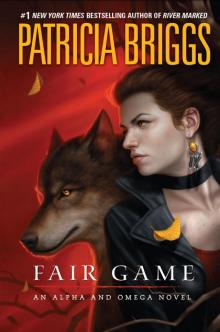 Fair Game
Fair Game Moon Called
Moon Called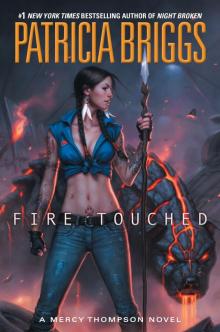 Fire Touched
Fire Touched Dead Heat
Dead Heat Blood Bound
Blood Bound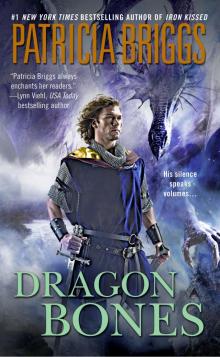 Dragon Bones
Dragon Bones Night Broken
Night Broken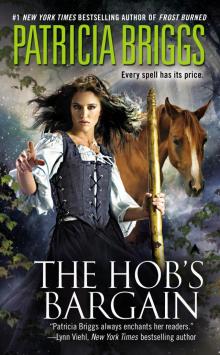 The Hobs Bargain
The Hobs Bargain Ravens Shadow
Ravens Shadow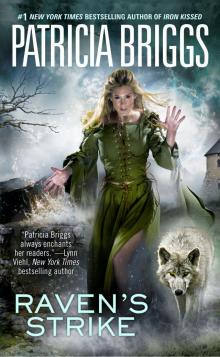 Ravens Strike
Ravens Strike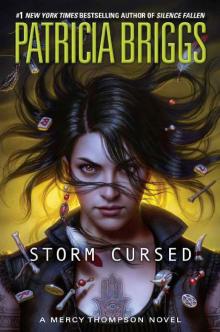 Storm Cursed (A Mercy Thompson Novel)
Storm Cursed (A Mercy Thompson Novel)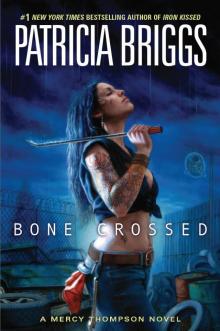 Bone Crossed
Bone Crossed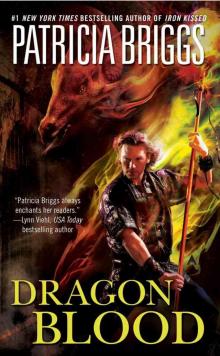 Dragon Blood
Dragon Blood Smoke Bitten: Mercy Thompson: Book 12
Smoke Bitten: Mercy Thompson: Book 12 Smoke Bitten
Smoke Bitten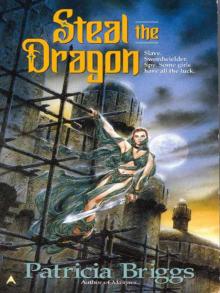 Steal the Dragon
Steal the Dragon 0.5 On The Prowl (alpha and omega)
0.5 On The Prowl (alpha and omega)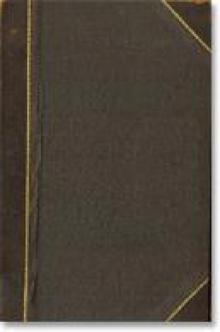 Alpha and Omega
Alpha and Omega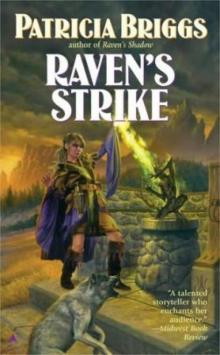 Raven's Strike rd-2
Raven's Strike rd-2![[Mercy 03] - Iron Kissed Read online](http://i1.bookreadfree.com/i/03/24/mercy_03_-_iron_kissed_preview.jpg) [Mercy 03] - Iron Kissed
[Mercy 03] - Iron Kissed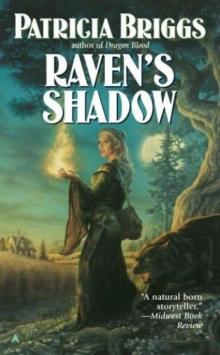 Raven's Shadow rd-1
Raven's Shadow rd-1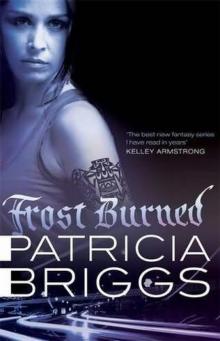 Frost Burned mt-7
Frost Burned mt-7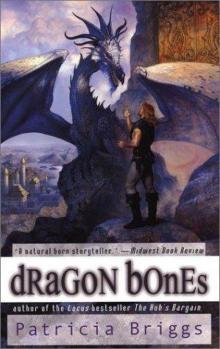 Dragon Bones h-1
Dragon Bones h-1 Shifting Shadows: Stories from the World of Mercy Thompson
Shifting Shadows: Stories from the World of Mercy Thompson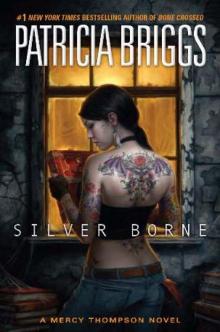 Silver Borne mt-5
Silver Borne mt-5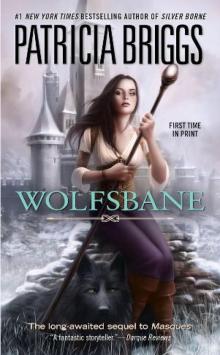 Wolfsbane s-2
Wolfsbane s-2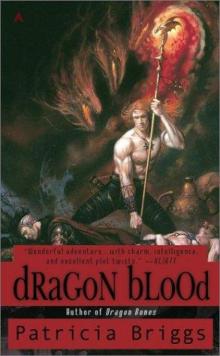 Dragon Blood h-2
Dragon Blood h-2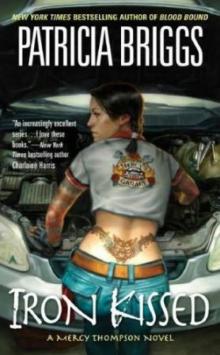 Iron Kissed mt-3
Iron Kissed mt-3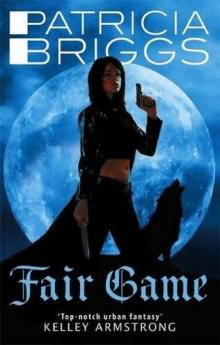 Fair Game aao-3
Fair Game aao-3 Masques s-1
Masques s-1![[Hurog 01] - Dragon Bones Read online](http://i1.bookreadfree.com/i1/04/03/hurog_01_-_dragon_bones_preview.jpg) [Hurog 01] - Dragon Bones
[Hurog 01] - Dragon Bones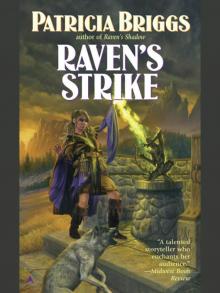 Raven s Strike
Raven s Strike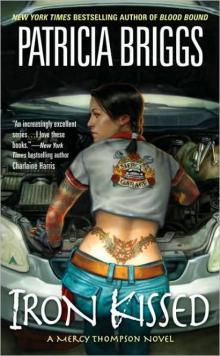 Mercedes Thompson 03: Iron Kissed
Mercedes Thompson 03: Iron Kissed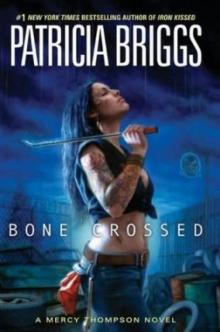 Bone Crossed mt-4
Bone Crossed mt-4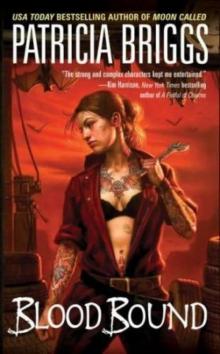 Blood Bound mt-2
Blood Bound mt-2![[Mercy 01] - Moon Called Read online](http://i1.bookreadfree.com/i2/04/09/mercy_01_-_moon_called_preview.jpg) [Mercy 01] - Moon Called
[Mercy 01] - Moon Called River Marked mt-6
River Marked mt-6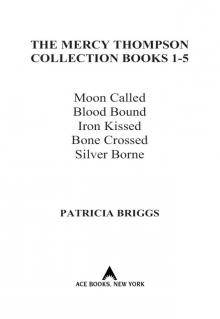 The Mercy Thompson Collection
The Mercy Thompson Collection Moon Called mt-1
Moon Called mt-1 Mercy Thompson 8: Night Broken
Mercy Thompson 8: Night Broken